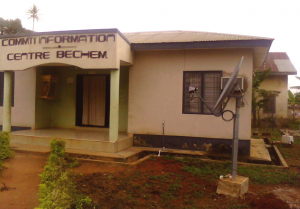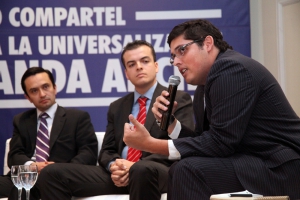Integra, under its Global Broadband and Innovations program, is supporting the government of Ghana to better promote broadband Internet use throughout the country. Ghana has a long and successful record of promoting ICT use – it was one of the first countries in Africa to establish a Universal Service Fund (in 2005) and was recently found to have the fastest Internet speeds in Africa. Yet with Internet penetration remaining at 10%, much work remains to be done.
The Ghana Investment Fund for Electronic Communications (GIFEC) is tasked with expanding broadband Internet into unserved and underserved areas, and it currently oversees a broad portfolio of projects. GIFEC has installed over 200 public telecenters nationwide (called Community Information Centers) and set-up Internet access in a number of public libraries and schools throughout the country. Yet as mobile broadband speeds become faster and handheld devices become cheaper, GIFEC is considering changing its access strategy.
To effectively do this it needs to understand the unique nature of the digital divide in Ghana. What types of households and individuals access the Internet, and for what purpose? What are the information needs of those that do not, and what are their major constraints in accessing that information? GIFEC will implement a survey, with Integra’s support, that will inform a study that clarifies the challenges people face to accessing the Internet in Ghana. Integra will assist with the preparation of the study and will work with GIFEC to move from the study to a new strategic plan. The strategic plan will then be validated by the joint implementation of pilot connectivity projects between GIFEC and Integra.
The project is moving forward rapidly. This week a penultimate draft of the survey instrument was produced, and we foresee enumerators carrying out the survey before the end of May. We are aiming for pilot projects to be implemented before the end of the summer.










































